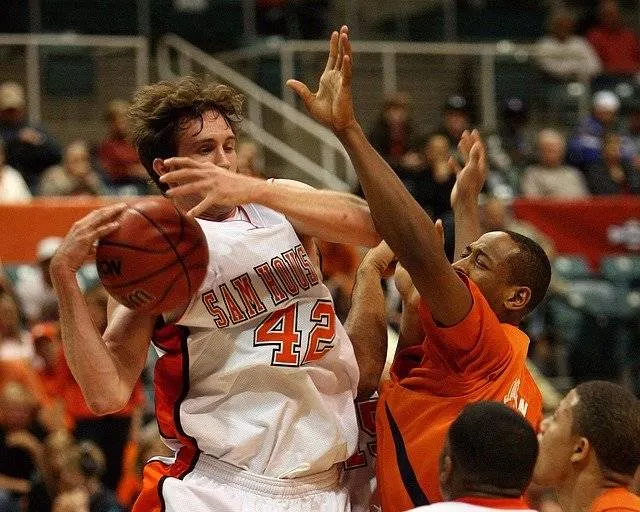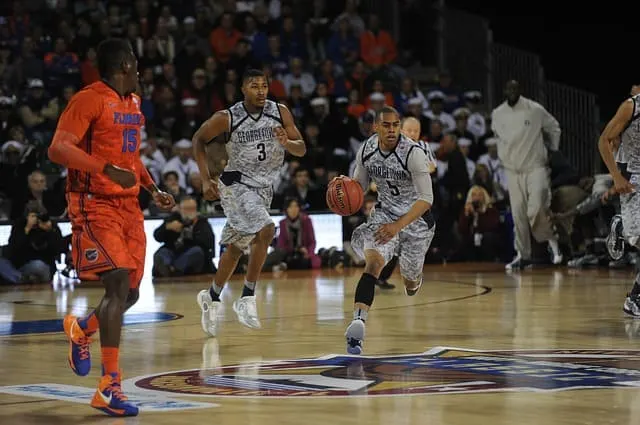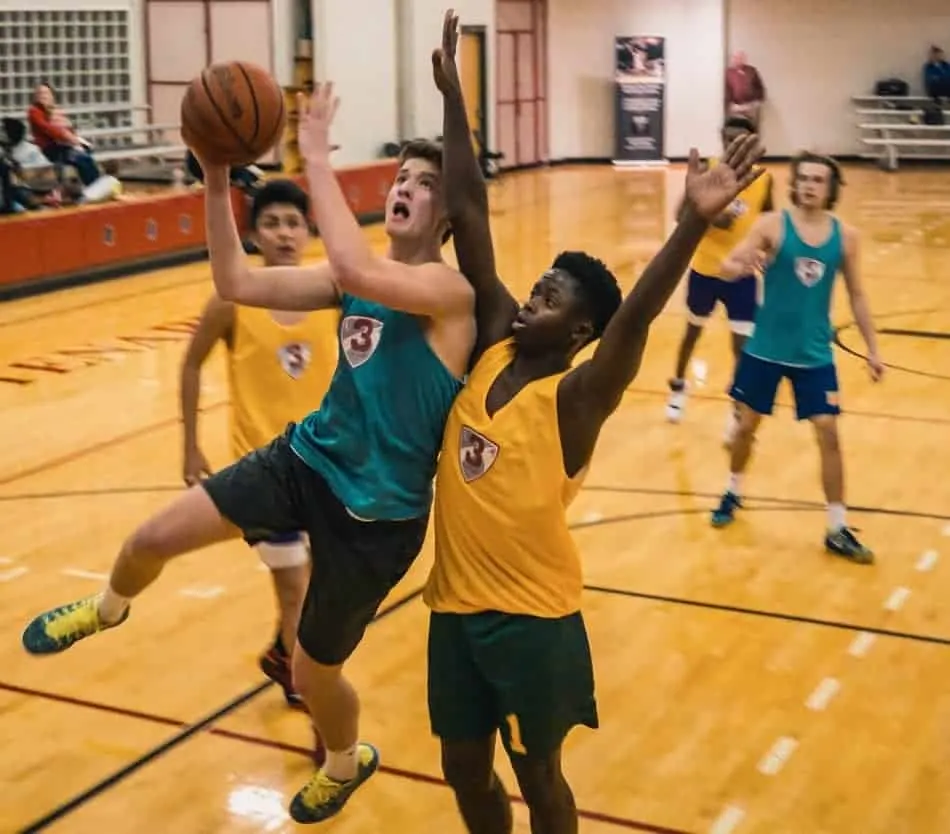Did you know, years ago in basketball if you didn’t raise your hand after committing a foul, the referee could give you a technical foul. Gone are the days of this old rule, but now that I got your attention you are probably wondering what benefit is there for a player to raise their hand after a foul is called in today’s game.
Why do basketball players raise their hand after a foul is committed? A player will raise their hand when a referee blows their whistle to acknowledge to the ref that it was in fact them who had committed the foul. The most common reason a player would do this is for strategic purposes. For example, if two players on the same team playing defense were near the ball handler and the foul is called, the player with the least amount of fouls will raise their hand immediately. This will help their teammate avoid being in foul trouble or even being fouled out.
Decades ago it would be the responsibility of the player to raise their hand after the whistle had been blown. This helped the refs indicate who made contact with the player as it can be difficult if one or more players are defending the ball during the time of the call and know exactly who committed the foul. But since then the referee now has full responsibility for making these calls.
If you are thinking about buying a basketball jersey or shoes, check out the offers below from these retailers.
| Retailer | Promo Code | Promotion | Link to Retailer |
 | DROP | 70% OFF | Go to Fanatics |
 | PARSCR20 | 20% OFF | Go to Eastbay |
 | N/A | N/A | Go to Amazon |

The Purpose of Raising Your hand When a Foul is Called
It doesn’t hurt to raise your hand when a foul is called. In fact, I believe that this a good characteristic for a player to do so on the court if you want to build a good report with the refs.
Think of it as helping them out, as it also shows good sportsmanship and respect. When you think about it, it sure doesn’t hurt to do so especially if you are the only player around the ball.
I would highly advise not doing it if you’re in foul trouble as referees are known to get calls wrong if they have a poor view due to a player being surrounded by other players at the time of foul being called.
Raising your hand can also alleviate what might be an aggressive foul, making it seem it wasn’t unintentional.
This is all up to the referee in the end to make the call but does work that you are acknowledging an aggressive foul as an accident-type foul. You’re hoping to avoid a technical.
Raising your hand during fouls is really a win-win, although you may think it’s a small thing to do but it really does benefit the player to build a rapport with the referee and acknowledge the ref doing their job.
If the referee sees you doing this he may give you the foul that was supposed to be for your teammate who was one foul away from fouling out.

Stopping the Fast Break
A player who has an advantage in speed or even in height during a one on one fast break will likely intentionally foul.
When they do they want to signal to the referee that they did.
This is to get a whistle call immediately, as there are times where a ref will miss it due to the speed at which players are moving.
If it doesn’t look like a foul and you let the refs call it and don’t, that could be an easy two points for the opponent.
Raising the hand indicates a foul is being made by the player, to avoid the missed call.
Intentional fouling
Intentional fouls happen at the end of the game when a team needs to stop the clock and put the opposing team on the line so they get the ball back.
For example, a team trailing by one point with 5 seconds on the clock will need to intentionally foul to put the opposing team on the line so they can get the ball back.
This gives the team an opportunity to tie or win the game with the last shot attempt.
When the team is trying to foul with 5 seconds to get the ball back they should go for an aggressive steal and if they foul in the process they should raise their hand.
I have seen many times where players wait for the referee to blow the whistle and never do, only to see more seconds on the clock wasted than needed or even run out.
Raising the hand can save the game for at least the final shot, and possibly save you some extra time on the clock.
Indicating hands were straight up
When big men play defense underneath the basket, they will tend to leave their arms straight up to block shots and avoid foul calls.
But this does not guarantee the player will be free from a foul called on them.
When the player believes to have their hands straight up and the whistle is blown to indicate there was a foul, a player will leave their arms up in the same position (straight up) to say to the refs look, these are where my hands have been the whole time.
This can be very frustrating for the player, and although the player does this, it really isn’t to indicate that they are guilty of fouling the player in question but that they are innocent of the foul.
Does it work to a player’s advantage? No.

Raising Your Hand
Failing to raise your hand in the 1970s was a common rule in basketball.
Failure to do so in a timely manner would result in a technical foul.
The raised hand would not only help make the official’s job easier but also the scorekeeper’s job, giving them the confirmation of who made the foul.
This rule changed in 1975 in the NBA, and soon after that, the barrage of complaints by players followed.
Scorekeepers can not rely on a raised hands now as players will bail out teammates who are in foul trouble.
It’s best that the scorekeeper waits for the referee to indicate who commited the foul when they relay the information directly in front of the scorer’s table.